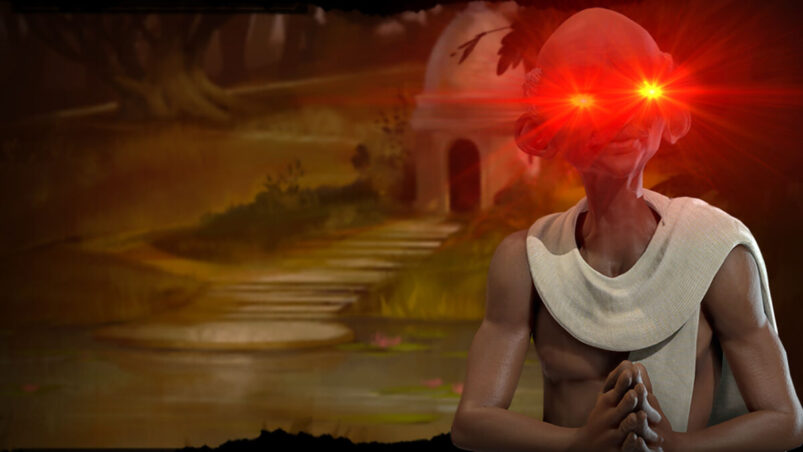The Civilization series is one of the most popular and well-known grand strategy 4X series currently on the market. Its enticing historical setting, addictive gameplay loop, and awesome potential for emergent storytelling are all central hallmarks, which give the series its timeless quality.
Firaxis’ flagship series has also inspired many a developer to try their hand at grand strategy, historical or otherwise. While there’s yet to be a game or series to take Civilization’s baton and advance this type of strategy game into the future, there’s still a menagerie of compelling games like Civilization for players to look into and enjoy.
For those interested in expanding their interests beyond Civilization or to try something new, we compiled the list of the best games like Civilization, limiting ourselves to one entry per franchise.
Best Games Like Civilization
10. Oriental Empires
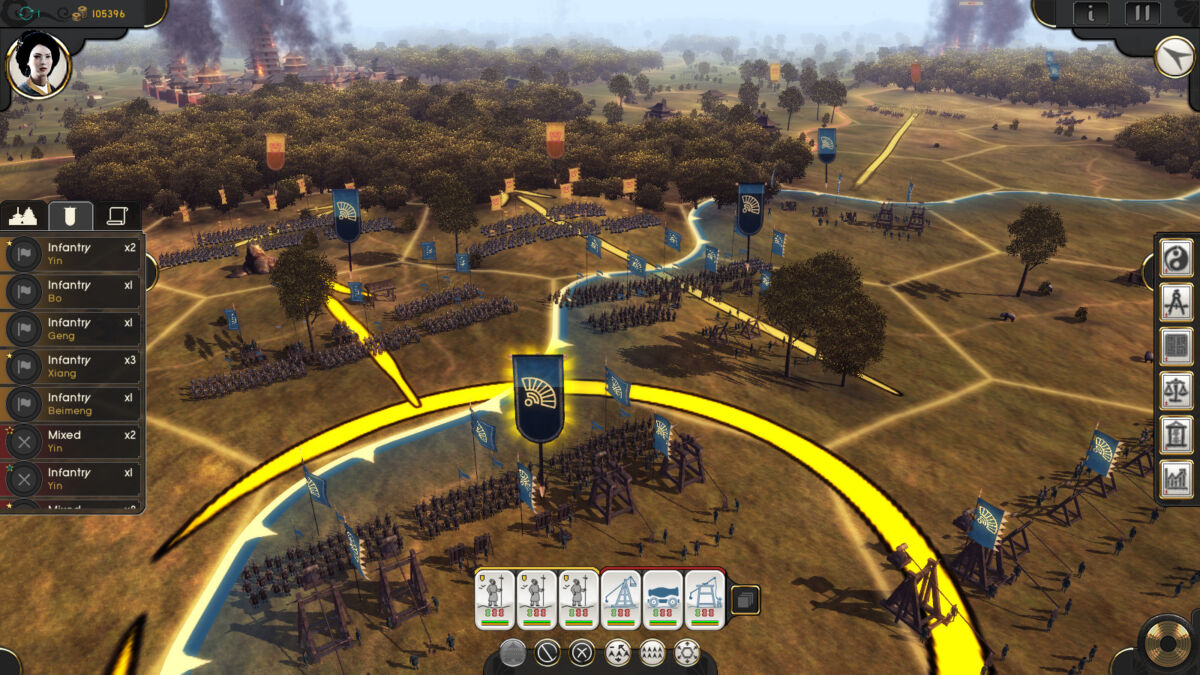
Developer: Shining Pixel Studios
Publisher: Iceberg Interactive
Platform(s): PC
Sometimes all you need is an underrepresented setting and some creative systems to differentiate your game from the classic. Oriental Empires does just that by setting the action squarely in East Asia, covering 3000 years of history starting in the Bronze Age and going all the way up to the Late Middle Ages.
Of course the choice of history and region does most of the heavy lifting in setting the game apart from Civilization, but there are a number of mechanics that are worth checking out. Specifically, the construction, unit recruitment, and hands-off army command systems give players additional meaningful ways of interacting with their cities and armed forces.
The lack of a budget does hamper Oriental Empires’ UI and combat and can make the experience more frustrating than it needs to be, but luckily the game as a whole works and still retains the familiar dynamic and rhythm found in Civilization. Oriental Empires is also worth checking out as it’s one of the few strategy games that steps away from the more commonly modeled Chinese Three Kingdoms period and instead looks at East Asian history more broadly.
9. Sid Meier’s Alpha Centauri
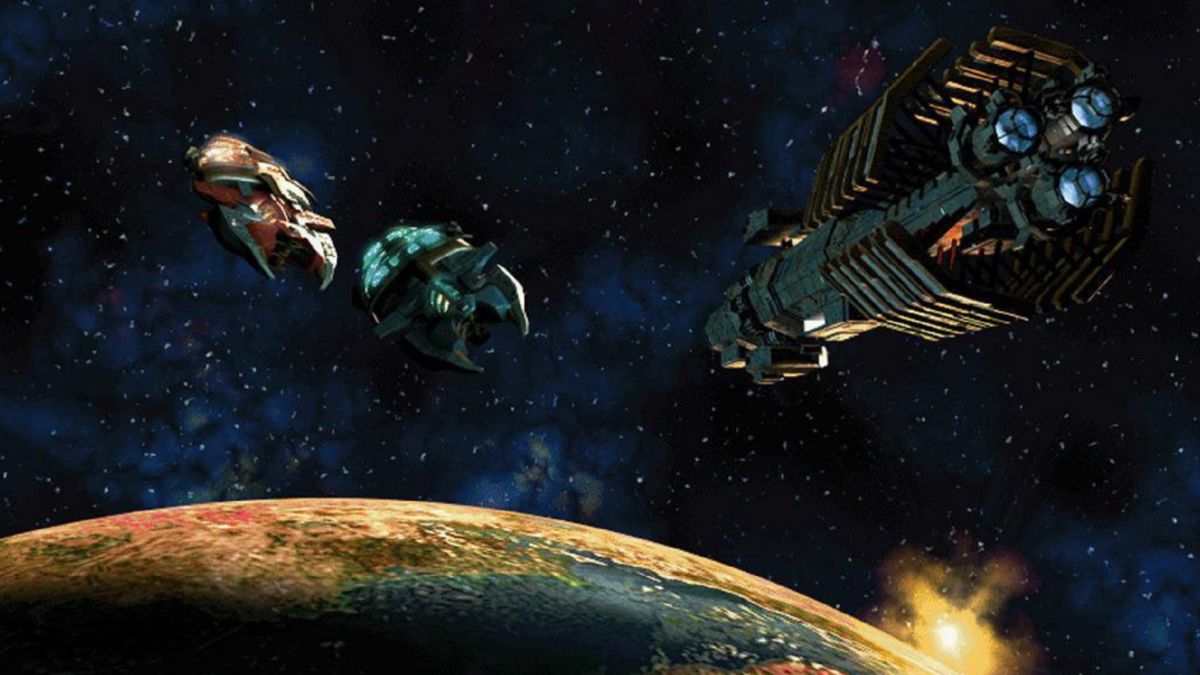
Developer: Firaxis Games, Westlake Interactive
Publisher: Electronic Arts, Aspyr Media, Loki Software
Platform(s): PC, macOS, Linux
For something funkier and futuristic while still retaining the same planetary scale of Civilization’s gameplay, Firaxis’ own sci-fi 4X game Alpha Centauri will definitely scratch that itch. If you’re already familiar with Civilization then you will feel right at home with Alpha Centauri as it acts as a kind of loose sequel to Civilization’s narrative and many of the mechanics and sensibilities come straight from the designers of that series.
Alpha Centauri’s biggest contribution and area of differentiation is the active involvement of the environment in player decision-making. In Civilization, except in a few circumstances, the developers treat the Earth simply as a platform to be exploited for resources and victory with only minimal consequence and development, yet in Alpha Centauri the planet and the environment will actively respond as if it’s an extra player forcing players to stay sharp.
Alpha Centauri is quite a dated game at this point with clunky controls and UI, but the gameplay is still oh so compelling. For that planetary exploration fix and struggling against the unknown, look no further than Alpha Centauri.
8. Warlock: Master of the Arcane
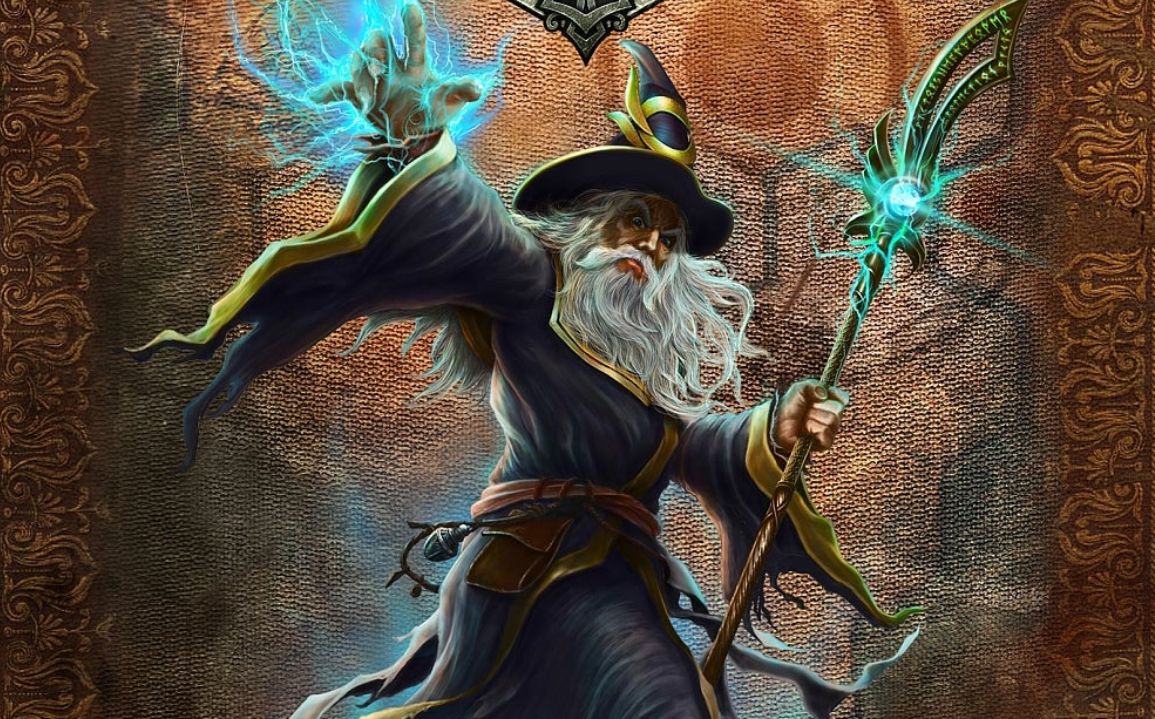
Developer: Ino-Co Plus
Publisher: Paradox Interactive
Platform(s): PC
From mysteries of the far future to magical planes of existence, Warlock: Master of the Arcane is the quintessential fantasy cousin of the Civilization series. But Warlock does more than just parade as a fantasy reskin of its counterpart.
The fantasy setting provides a lot of room for experimentation and clever twists on familiar mechanics, for example technology research is replaced with spell research and the ability to cast various spells on the strategic map, on top of commanding armies of fantasy creatures and troops. In addition, Warlock is one of the few grand strategy games that includes multiple maps representing different worlds that players can hop to and tame for their own benefit, letting players essentially play a kind of three dimensional chess.
Warlock’s UI doesn’t do the game any favors and might make it somewhat harder for new players to get into, but it has little effect on the clever gameplay and design choices. Master of the Arcane definitely fills that smaller-scale indie grand strategy niche with a great interpretation and implementation of fantasy-inspired systems.
7. Warhammer 40000: Gladius – Relics of War
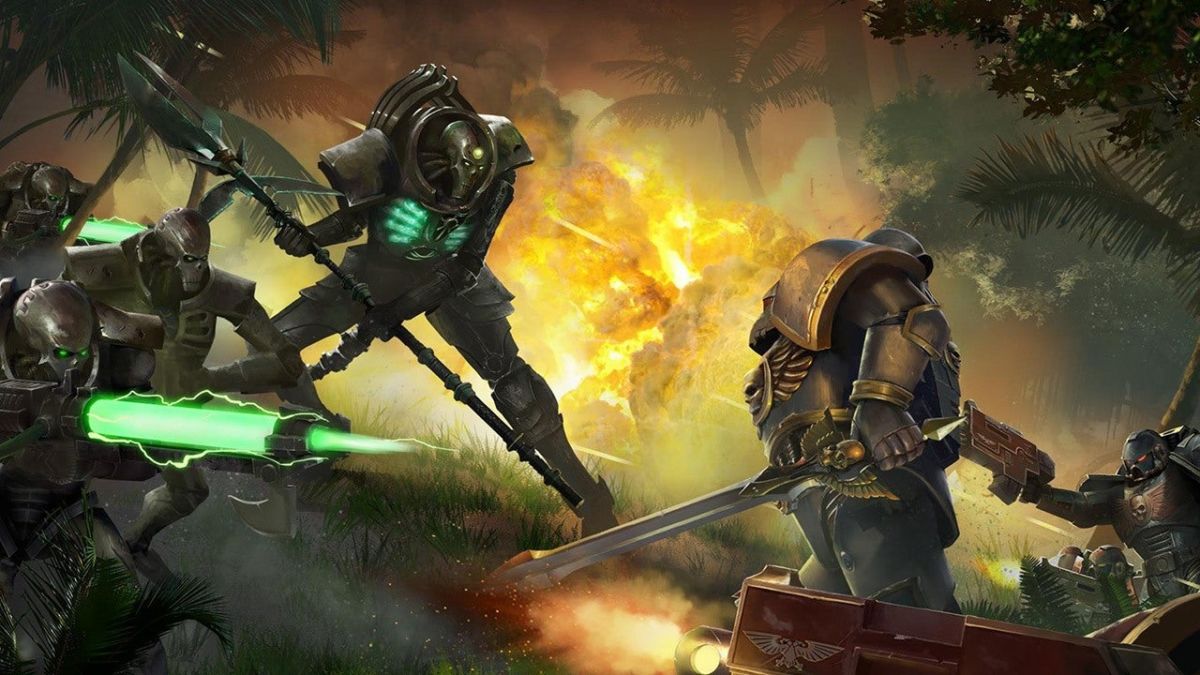
Developer: Proxy Studios
Publisher: Slitherine Software
Platform(s): PC, Linux
Where oh where are the Warhammer 40K grand strategy games? Clearly lost in the Warp. For all the wide variety of Warhammer licensed games, grand strategy has been the least explored, despite the massive potential, meaning that Gladius – Relics of War gets extra kudos for being the first and most prominent.
It’s a bit of a misnomer to call Gladius a true 4X grand strategy experience, as it’s so combat-focused and streamlined compared to Civilization that it comes across more like a turn-based version of a classic RTS that just resembles Firaxis’ title structurally. Being so combat focused gives Relics of War a unique position amongst other games of its ilk with excellent faction diversity, extensive unit rosters, and awesome potential for creative tactical decision-making, all the while combining elements of a hostile environment a la Alpha Centauri.
Balance issues and a lack of diplomacy can leave Gladius feeling a bit shallow or bland, but this is a blessing in disguise as it leaves its matches feeling tight, bloody, and brutal. Not to mention the Warhammer license means Gladius’ world stands out from the rest and make it a worthy game to check out for strategy fans looking for games like Civilization.
6. Endless Legend
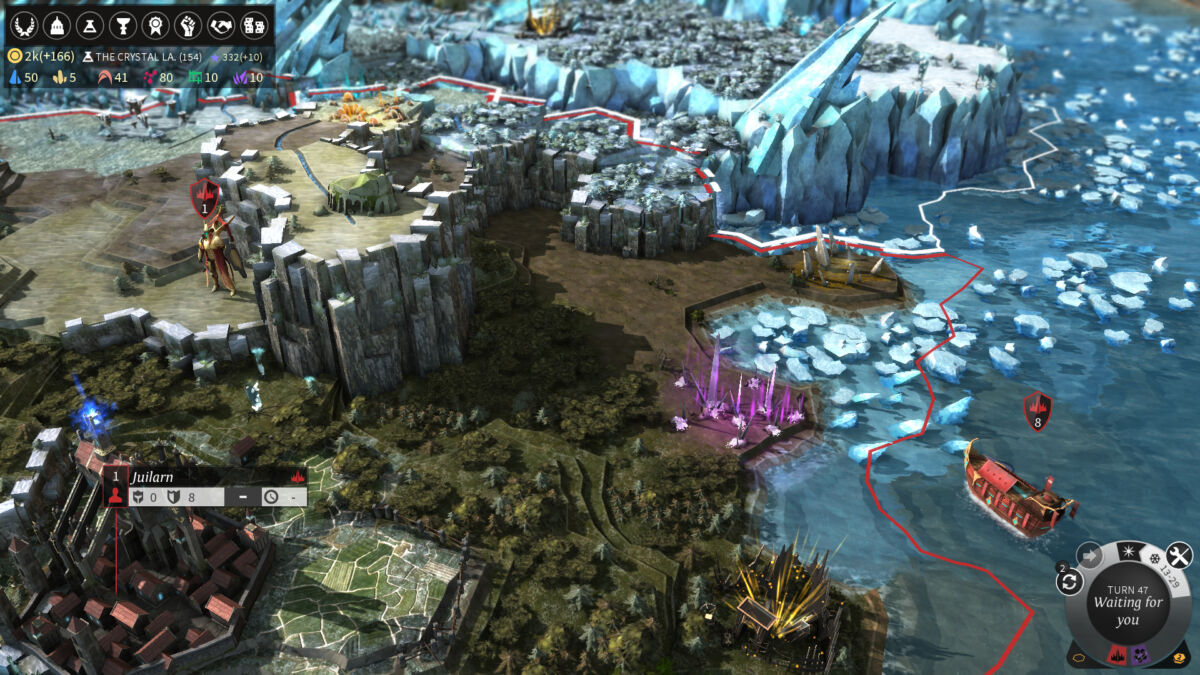
Developer: Amplitude Studios
Publisher: SEGA, Iceberg Interactive
Platform(s): PC, macOS
Warlock: Master of the Arcane isn’t the only fantasy grand strategy game on the block. Amplitude Studios’ Endless Legend is a marvel of visual design and creative ideas that really show how unique worlds and factions can inform game design within a familiar framework.
Endless Legend leans a bit more into the realm of science-fantasy, which feeds into its excellent faction design, where faction differences go beyond simple modifiers and go into the territory of unique mechanics. On top of the great factions, Amplitude introduced a new sector-based approach to territorial control, which will inadvertently lead to interesting economic, diplomatic, and military conundrums.
The turn-based combat system, while great in concept, is where the game is least compelling with most meaningful control taken away from the player, leaving battles feeling pointless. Nonetheless, Endless Legend’s strategic layer, variety, and beautiful aesthetic design make it an excellent game to jump to.
5. Age of Wonders: Planetfall
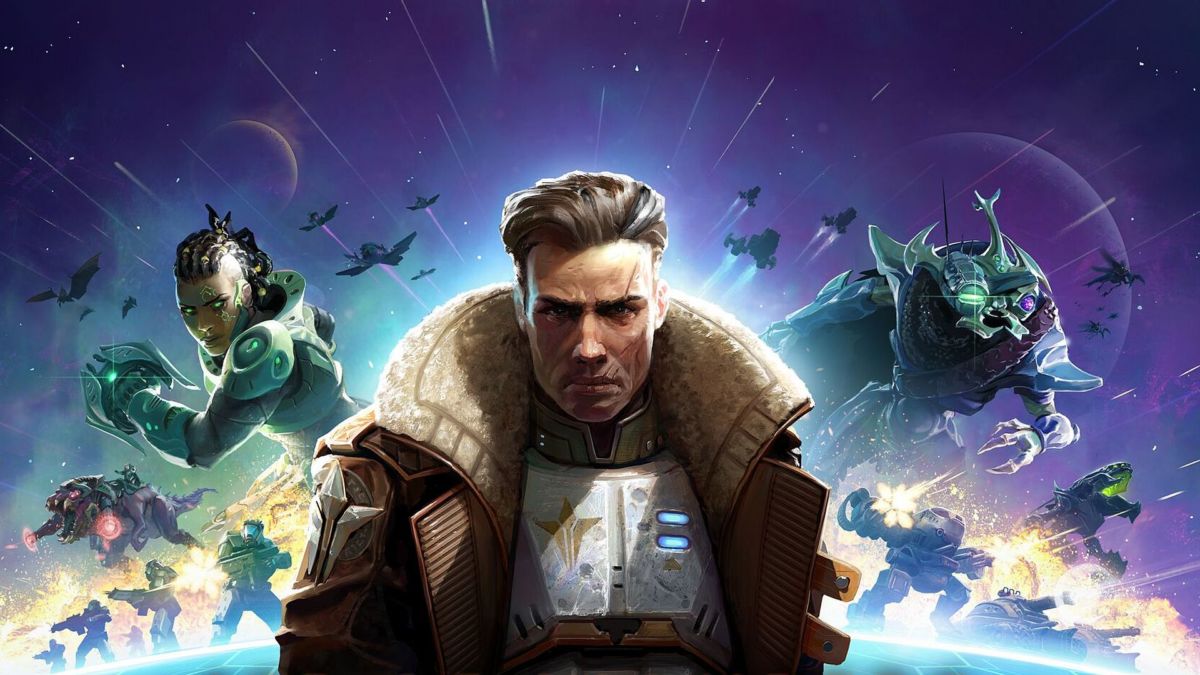
Developer: Triumph Studios
Publisher: Paradox Interactive
Platform(s): PC, PS4, Xbox One
Taking and running with Endless Legend’s sector system all the way into space, Age of Wonders: Planetfall is Triumph’s first and highly successful foray into sci-fi for their normally fantasy-set Age of Wonders series. Planetfall’s biggest selling point is maximizing player flexibility and increasing game variety and replayability as much as possible.
Planetfall’s secret sauce lies not only in the incredible customizability of any given match, but also the way factions and technology interact to create unique strategic opportunities. In Civilization, the research tree will always be the same, whereas in Planetfall players slot in a secret technology that may have drastic effects on their strategic and tactical playstyles.
This does come at the cost of each faction lacking in a concrete strategic identity, as well as a simplistic economic system. However, the amount of control players get over their experience and faction, on top of a solid tactical combat system, makes Planetfall a real fun beast to tame.
4. Old World
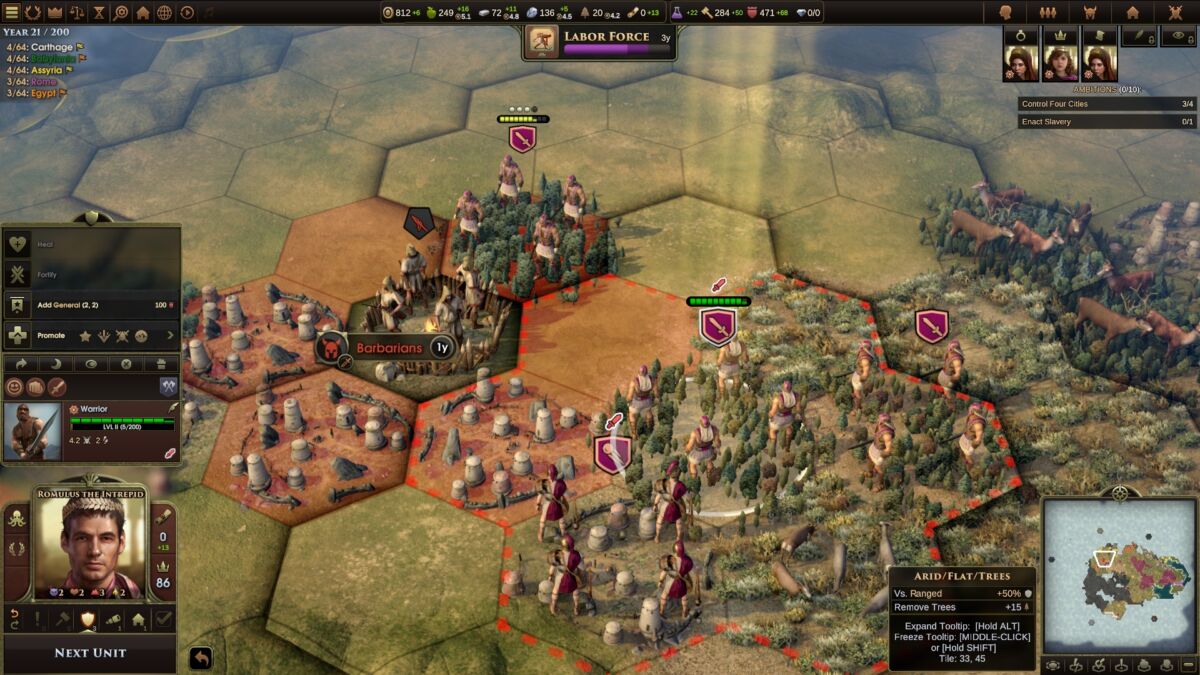
Developer: Mohawk Games Inc.
Publisher: Mohawk Games Inc.
Platform(s): PC, macOS
Taking a more focused approach to grand strategy akin to Oriental Empires, Old World sees players acting as the leader of an Iron Age Mediterranean culture, such as Rome or Babylon. Fun fact, the founder of Mohawk Games, Soren Johnson, was the lead designer of Civilization 4 and you can clearly tell the love the development team has for the series in Old World.
The decision to go for a focused historical setting lent itself to making Old World one of the more unique grand strategy games by including a prominent dynasty and character management system, where the player’s family members, children, courties, ministers, and other ruling families have a significant impact on player strategy, giving the entire loop a personal touch and some light role-playing. The inclusion of an extensive random events system also gives the game a sense of dynamism and decent potential for emergent story-telling.
In addition, Old World introduces some interesting features, such as legitimacy and orders that can affect the amount of actions players can do per turn, something unheard of in 4X games of this style. The combat does leave something to be desired and graphically the game isn’t too impressive, but Old World’s potential for great multiplayer replayability gives it a leg up over the Civilization series.
3. Stellaris
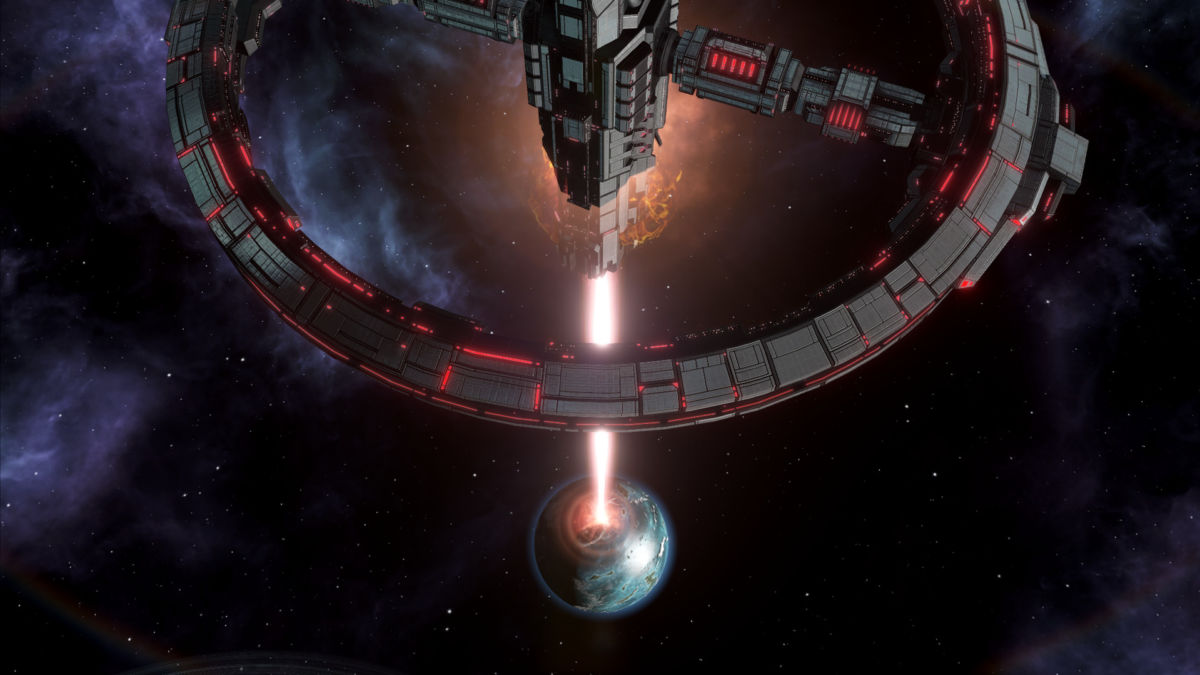
Developer: Paradox Development Studio, Tantalus Media
Publisher: Paradox Interactive
Platform(s): PC, macOS, Linux, PS4, Xbox One, Xbox Series X | S
You can only find truly epic scale in grand strategy games, such as Civilization, and the king of such scale is Paradox’ Stellaris, as a real-time take on galactic grand strategy. There’s so much going on in Stellaris at any given time that it’s hard not to take a deep breath just to absorb the symphony of systems at play.
Stellaris stands out for its insane freedom and customization options in empire creation, with players being able to create, essentially, any space empire of their dreams with the right modifiers, characteristics, and features. The game also boasts a unique victory condition system that lets players pursue several avenues of success without having to pigeonhole into one path.
Like most Paradox strategy games, Stellaris can come across as an overwhelming and soulless spreadsheet strategy game where numbers matter more than the overall action on screen. However, there’s definitely a kind of meditative aspect to Stellaris math-centric strategy once players figure the game out and find their groove and the absolute insane scale alone is something to behold.
2. Humankind
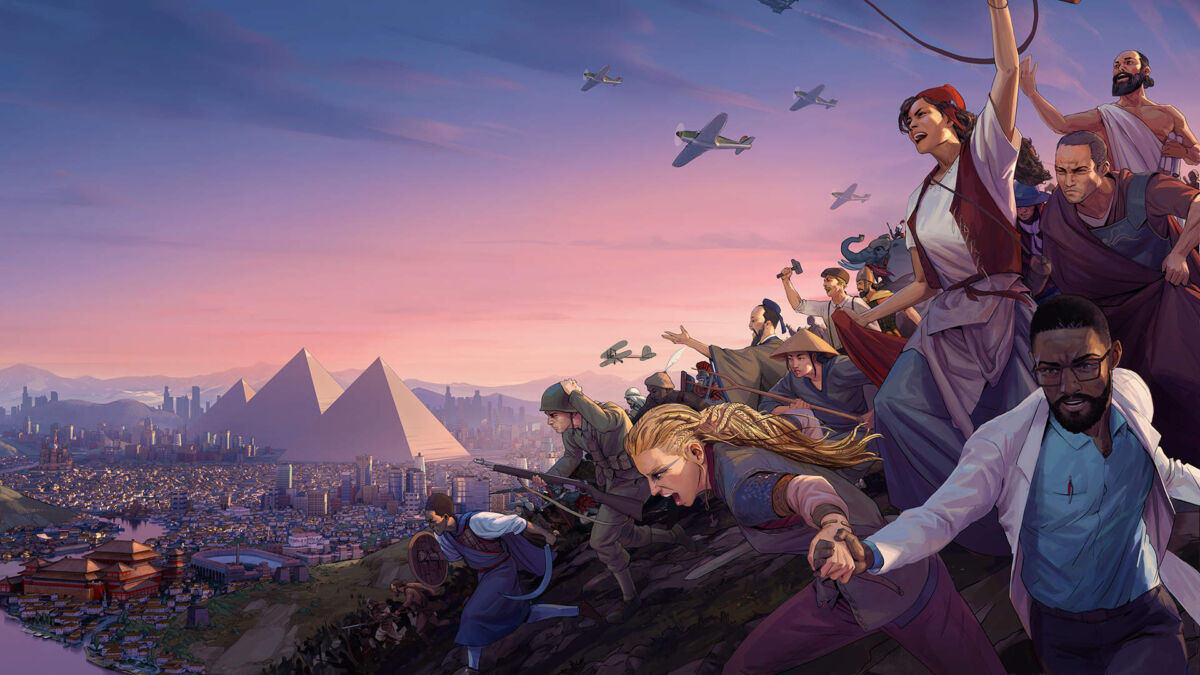
Developer: Amplitude Studios
Publisher: SEGA
Platform(s): PC, macOS, Stadia
Amplitude is really making a name for themselves as an excellent 4X grand strategy game developer and Humankind is their latest offering. Unlike Endless Legend or Endless Space, Humankind takes place on Earth and has the player making their own tribe of people become the most famous and impactful civilization in all of humanity’s history.
Humankind, along with Old World, has introduced new systems to the genre that alone make it worth checking out, specifically the innovative culture evolution system and the excellent tactical combat system. Unlike in Civilization where players choose one faction and stick with it for the entirety of a match, in Humankind players will shift cultures as they develop through the ages, authentically modeling the ebb-and-flow of cultures throughout recorded history.
Balancing issues and resulting odd pacing do neuter some of Humankind’s lofty ambitions and plenty of minor bugs will distract from the overall quality of the game. Regardless of these issues, Humankind presents many compelling ideas and a different look at history that are alone worth the price of admission.
1. Total War: Shogun 2
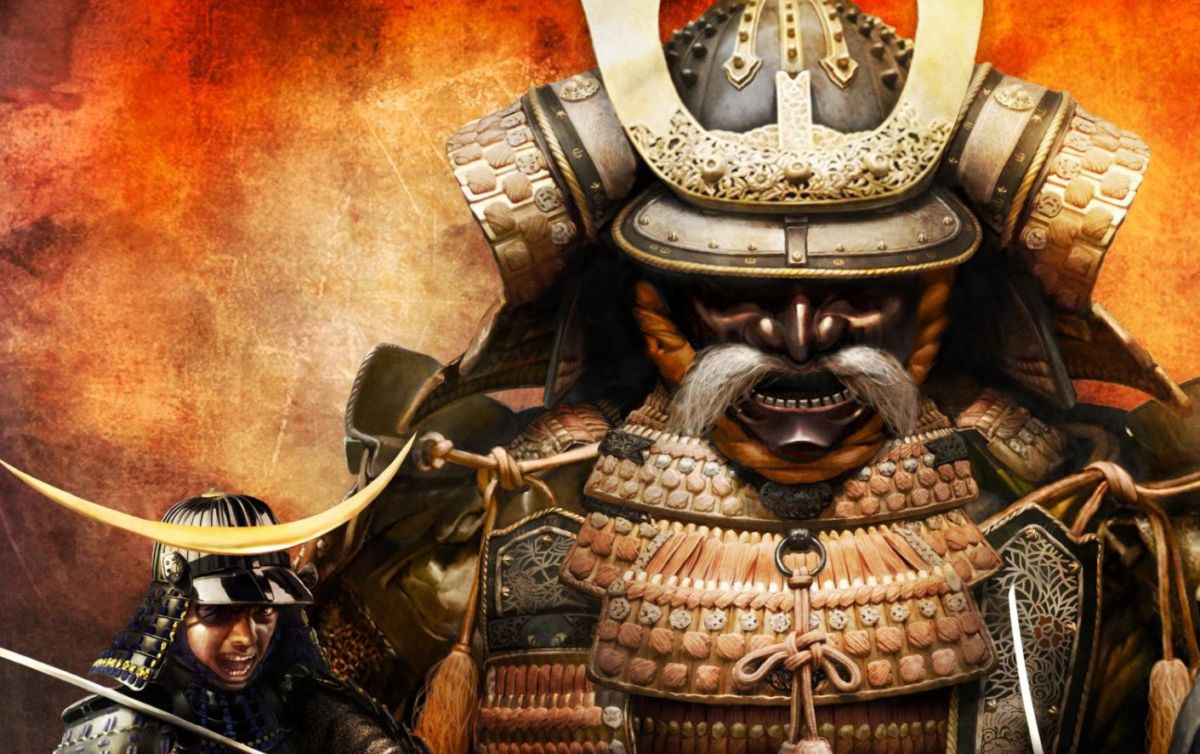
Developer: Creative Assembly
Publisher: SEGA
Platform(s): PC, macOS, Linux
Another combat-oriented grand strategy game, Shogun 2 and games from its series aren’t often called 4X games, though on the whole they exhibit many similar features, aside from the prominent exploration component of 4X. In Shogun 2, players will act as the feudal lord or daimyo of their chosen clan during Japan’s Warring States period (Sengoku Jidai) with the goal of unifying the archipelago and becoming the next overall military leader or Shogun.
The Total War series prides itself for its tense one-of-a-kind real-time tactical battles on top of a compelling strategy layer that involves construction, diplomacy, and army recruitment. While it may not be as massive as Warhammer 2, Shogun 2 still brings some of the best features to the series, such as an incredible multiplayer mode and a great setting.
Though there’s a lot less direct map manipulation in Shogun 2 with economic development concentrated in towns and points of interest rather than sprawled out over all of Japan, such an approach still reflects Civilization’s resource system in a more abstract manner. All-in-all, Shogun 2 marries solid strategic mechanics and a great tactical battle system, resulting in one of the best games like Civilization to check out.
READ NEXT: 15 Best Strategy Games for Low-End PCs
Some of the coverage you find on Cultured Vultures contains affiliate links, which provide us with small commissions based on purchases made from visiting our site.
